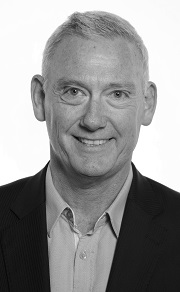Avoiding the marching robots: why specialising too early could be a career mistake
Lawyers who specialise too early risk missing out on a more varied and interesting career
May 15, 2018 at 11:55 AM
5 minute read
From an early age there's pressure on an individual to make choices that are presented as being "necessary" to achieve certain career goals. But who really knows in school whether you want to pursue a career as a doctor, or lawyer, a music therapist or a chef?
There are certainly some lucky individuals who have a single-minded focus on their career aspirations from a young age, but on the whole, those people are few and far between.
For a long time we've seen this pressure to make "necessary" choices put on law students, trainees and NQs with respect to which area of the law they want to specialise in. But is this a good thing? Does it lead to the right choices? What are the consequences of 'wrong' choices? And more importantly, is the model of specialising early the right model for millennials and the future of the profession?
As with all conundrums, there are pros and cons for both sides of the argument, and we have to remember, the legal profession is not homogenous. It's comprised of a myriad of firm types, practice areas and motivations behind individuals entering the profession. Overlay this with the changing expectations of customers, the changing nature of how we work and disruptive technology, and the question as to whether there are dangers in specialising too early is indeed a vexing question.
The reality is, there is no right answer to this question; it ultimately depends on the individual, the type of firm and the complexity of the area of specialism. But if you specialise too early, then you may end up missing an opportunity to experience a practice area to which you are either better suited or you may find infinitely more interesting than the area in which you end up practising.
The current structure of most traineeships requires a decision to be made about a practice area post-qualification even before you have experienced the final seat, and often trainees will feel pressured to accept a position in a particular specialism simply to ensure an NQ position. This can often lead to great uncertainty about whether the choice is the 'right' choice, and a 'wrong' choice can often result in the individual feeling somewhat disenfranchised, which could see them leave the law long before they've really had an opportunity to find 'their place'.
If you specialise too early, you may miss an opportunity to experience a practice area you find infinitely more interesting
An individual's decision to change their specialism, or indeed to specialise, will to some extent depend on the type of firm they work for, as it is extremely difficult to jump firms into a new area of law when you don't have any experience in that particular area of law.
The ability to change specialism typically needs to be supported by the firm, and the firm needs to be structured in such a way that you have an opportunity to continue to work in an area where you can generate sufficient fee revenue while learning a new area and building expertise and a client base. Such arrangements are more likely to be fostered and supported by small and medium-sized firms, as most large law firms do not have flexible enough structures and cost bases to support such a transition.
Firms of all sizes have their pros and cons. One of the biggest advantages of small and medium-sized firms, other than the one above, is the interaction you will have with clients even during your training. In larger firms, you will likely work as part of a bigger team. In the early part of your career, while you may attend client meetings and observe, you may not have a key role to play in providing the advice. The path to partnership is typically much shorter in small to-medium sized firms as well,  which many see as an advantage.
which many see as an advantage.
One of the disadvantages of working for smaller firms though is the level of remuneration, with many partners in small firms taking home less than an NQ in some of the big US firms. But it's not all about the money – it's about life choices and the degree of flexibility and balance a lawyer is looking for.
The choice of firm size therefore is very much about an individual's personal career objectives. One observation worth noting though, is that it is considered easier making the transition from a larger firm to a small firm, rather than the other way around.
If an individual is concerned about the danger of specialising too early, there is a middle ground, which is to be both a generalist with a specialism, working in a team of likeminded lawyers with complimentary specialisms. More firms are starting to take this approach as clients are expecting lawyers to be more commercially-minded, providing advice that isn't outside of the law, but that balances the risks with the environment in which the client operates. Lawyers are therefore becoming business advisers and consultants. Taking this approach may well future-proof your career, and reduce the risk that your chosen specialism isn't one that is in the path of the marching robots.
Simon Walsh (pictured) is a partner at Oury Clark.
NOT FOR REPRINT
© 2025 ALM Global, LLC, All Rights Reserved. Request academic re-use from www.copyright.com. All other uses, submit a request to [email protected]. For more information visit Asset & Logo Licensing.
You Might Like
View All

Clifford Chance Further Modifies Lockstep to Better Reward Top Performers
2 minute read
UK Black History Month: Four A&O Shearman Staffers Honour Their Unsung Heroes
6 minute read
How Many Legal Jobs Will be Affected by AI? Law Firms Can't Agree
Trending Stories
Who Got The Work
J. Brugh Lower of Gibbons has entered an appearance for industrial equipment supplier Devco Corporation in a pending trademark infringement lawsuit. The suit, accusing the defendant of selling knock-off Graco products, was filed Dec. 18 in New Jersey District Court by Rivkin Radler on behalf of Graco Inc. and Graco Minnesota. The case, assigned to U.S. District Judge Zahid N. Quraishi, is 3:24-cv-11294, Graco Inc. et al v. Devco Corporation.
Who Got The Work
Rebecca Maller-Stein and Kent A. Yalowitz of Arnold & Porter Kaye Scholer have entered their appearances for Hanaco Venture Capital and its executives, Lior Prosor and David Frankel, in a pending securities lawsuit. The action, filed on Dec. 24 in New York Southern District Court by Zell, Aron & Co. on behalf of Goldeneye Advisors, accuses the defendants of negligently and fraudulently managing the plaintiff's $1 million investment. The case, assigned to U.S. District Judge Vernon S. Broderick, is 1:24-cv-09918, Goldeneye Advisors, LLC v. Hanaco Venture Capital, Ltd. et al.
Who Got The Work
Attorneys from A&O Shearman has stepped in as defense counsel for Toronto-Dominion Bank and other defendants in a pending securities class action. The suit, filed Dec. 11 in New York Southern District Court by Bleichmar Fonti & Auld, accuses the defendants of concealing the bank's 'pervasive' deficiencies in regards to its compliance with the Bank Secrecy Act and the quality of its anti-money laundering controls. The case, assigned to U.S. District Judge Arun Subramanian, is 1:24-cv-09445, Gonzalez v. The Toronto-Dominion Bank et al.
Who Got The Work
Crown Castle International, a Pennsylvania company providing shared communications infrastructure, has turned to Luke D. Wolf of Gordon Rees Scully Mansukhani to fend off a pending breach-of-contract lawsuit. The court action, filed Nov. 25 in Michigan Eastern District Court by Hooper Hathaway PC on behalf of The Town Residences LLC, accuses Crown Castle of failing to transfer approximately $30,000 in utility payments from T-Mobile in breach of a roof-top lease and assignment agreement. The case, assigned to U.S. District Judge Susan K. Declercq, is 2:24-cv-13131, The Town Residences LLC v. T-Mobile US, Inc. et al.
Who Got The Work
Wilfred P. Coronato and Daniel M. Schwartz of McCarter & English have stepped in as defense counsel to Electrolux Home Products Inc. in a pending product liability lawsuit. The court action, filed Nov. 26 in New York Eastern District Court by Poulos Lopiccolo PC and Nagel Rice LLP on behalf of David Stern, alleges that the defendant's refrigerators’ drawers and shelving repeatedly break and fall apart within months after purchase. The case, assigned to U.S. District Judge Joan M. Azrack, is 2:24-cv-08204, Stern v. Electrolux Home Products, Inc.
Featured Firms
Law Offices of Gary Martin Hays & Associates, P.C.
(470) 294-1674
Law Offices of Mark E. Salomone
(857) 444-6468
Smith & Hassler
(713) 739-1250









